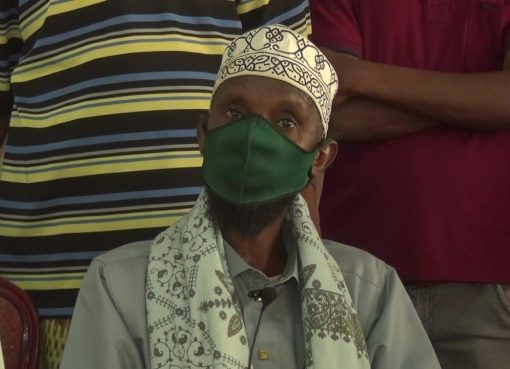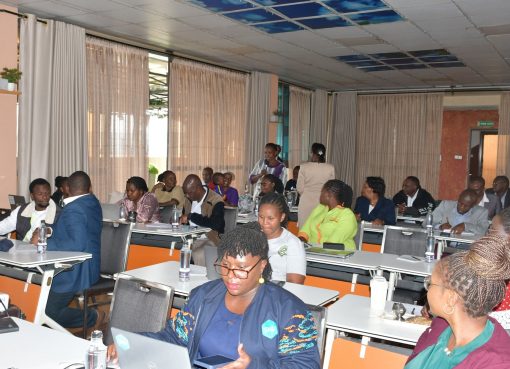The government has embarked on an appraisal of the Sacco Societies Act 2008 in order to strengthen and restore trust, transparency and accountability in the cooperatives sub-sector.
Prime Cabinet Secretary Musalia Mudavadi said the reforms further aim to root out graft by rogue officials whose actions have disillusioned society members and soiled the image of Sacco societies in the country.
“This comprehensive framework aims to establish a more robust, transparent, and accountable sector. It is also intended to root out the impropriety and malfeasance perpetrated by a few officials whose actions have stained the reputation of an otherwise noble movement,” Mr Mudavadi stated.
While delivering a speech on behalf of President William Ruto during Ushirika Day celebrations at KICC, the Prime Cabinet Secretary said the government has constituted a high-level committee of experts comprising both international professionals and distinguished local practitioners to undertake a comprehensive review of the Sacco sub-sector legal framework.
He said the Committee of Experts is mandated to identify and address legal and regulatory shortcomings that have, in some cases, enabled mismanagement and undermined public confidence.
“These reforms will culminate in the review of the SACO Societies Act 2008 and the development of regulations to operationalize both the amended SACO Societies Act and the new Co-operatives Act,” said Mudavadi.
He announced that the government is committed to pursuing the recovery of misappropriated funds and holding to account in full those found culpable for the embezzlement in accordance with the law.
“We are resolute in our determination to restore integrity, trust, and dignity to the co-operative sector. As part of our National Economic Transformation Agenda, we are also implementing targeted interventions in high-impact value chains, namely coffee, cotton, dairy, beef, and leather”, emphasized the Prime Cabinet Secretary.

Mudavadi described the coffee, cotton, dairy, beef, and leather sectors as key to the economic development and transformation of the country.
“These sectors hold immense potential for increasing rural incomes and securing livelihoods. In the coffee sector, we have introduced far-reaching reforms aimed at improving transparency, accountability, and efficiency. The licensing framework has been restructured to assign clear and distinct mandates”, he added.
In the coffee sector, the Prime Cabinet Secretary revealed that the government has increased the Coffee Cherry Advance Revolving Fund, marking up its capitalization from Sh3 billion to Sh4.75 billion.
Mudavadi also announced the government has approved Sh6.8 billion debt waiver for coffee co-operative societies, with Sh2 billion allocated in the current Financial Year.
“These measures are bearing fruit, with some regions now recording an increase in farmgate coffee prices from Sh50 per kilogram, to as high as Sh150 per kilogram,” he explained.
In the cotton sub-sector, Mr Mudavadi stated the government has embarked on a modernization program for ginneries, to reinvigorate cotton cooperatives.
At the same time, the Prime Cabinet Secretary said a whopping Sh4.6 billion has been channelled to the dairy sector to facilitate the modernization of New Kenya Co-operative Creameries, including facility upgrades and milk stabilization.
“Milk coolers have been distributed to dairy co-operatives to improve product quality and reduce post-harvest losses. These interventions are geared toward improving farm productivity, stabilizing prices, and enhancing farmer profitability”, he reiterated.
On the beef and leather value chains, Mudavadi stated they have constituted a livestock sector working group to dismantle policy and financial bottlenecks and unlock opportunities for pastoralist communities.
He said the government is spearheading the promotion of livestock cooperatives and revitalization of existing ones, particularly in arid and semi-arid lands.
“Feed load systems are being advanced through cooperatives as a sustainable solution to increase productivity, improve value addition, and secure pastoral livelihoods. In addition, we are promoting the establishment of multi-value cooperatives and savings and credit cooperatives in every ward across the country,” the Prime Cabinet Secretary further stated.
Mudavadi said the grassroots institutions will serve as last-mile service delivery hubs, facilitating aggregation, market access, value addition, access to affordable credit and farm inputs.
He underscored that the approach is central to the Kenya Kwanza administration’s strategy of creating jobs and enhancing rural livelihoods while unlocking the full potential of our value chains.
Speaking at the same event, Cooperatives and Micro-Small and Medium Enterprises Cabinet Secretary Wycliffe Oparanya said under the bottom-up economic transformation agenda (BETA), cooperatives are central, ensuring that we have affordable credit, access to members, and MSMEs.
He said cooperative societies similarly champion youth and women, ensuring that there is diversity, which drives sustainability.
“Cooperatives play a very important role in this economy of our country, and you are the pillars of Kenya’s economic transformation. Let us work together for an inclusive, sustainable and prosperous future,” Oparanya stated.
Chairman of the Cooperative Alliance of Kenya (CAK), McCloud Malonza, said the challenge of climate change has had a heavy toll on the agriculture sector and subsequently affected the financial standing of many agriculture-based cooperatives.
He appreciated the government’s efforts at mitigating the effects of climate change in the country, saying that cooperatives, through their geographical spread and knowledge depth of community work, can be a major vehicle through which the country can mitigate the negative effects of climate change.
“We request the government to mainstream the cooperatives in the national efforts of water, soil, and environmental conservation and possibly earn from carbon credits. This way, we will ensure the farming activities of our cooperatives are sustainable into the future”, Malonza said.
The role of cooperatives cannot be underestimated. With 30 per cent national savings and employing over 500,000 directly and millions of others drawing a livelihood indirectly, cooperatives are a key component of the economy.
This year’s Ushirika Day is also the year which has been declared by the United Nations as the International Year of Cooperative, is running under the theme: ‘Driving inclusive and sustainable solutions for a better world’.
By Wangari Ndirangu





